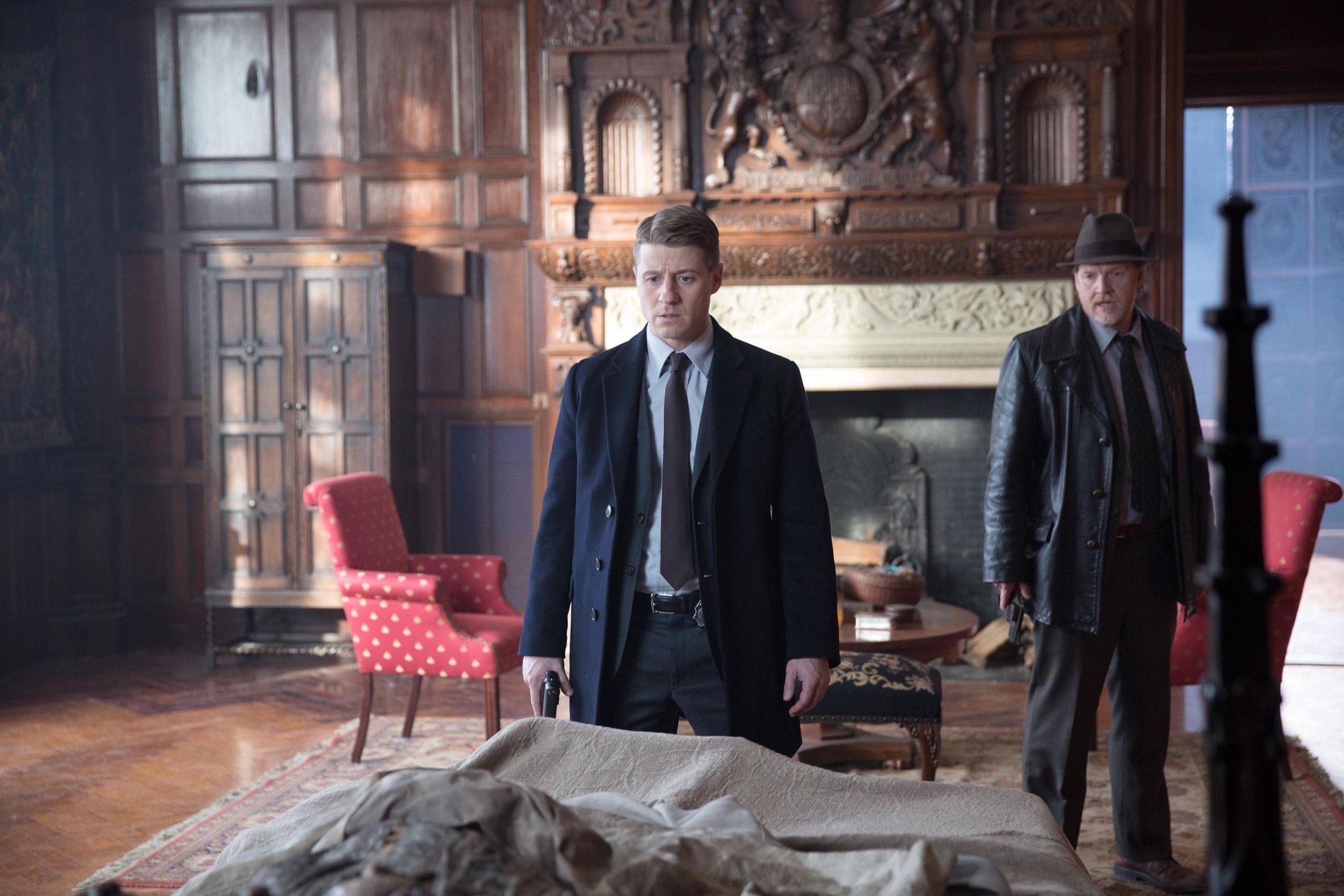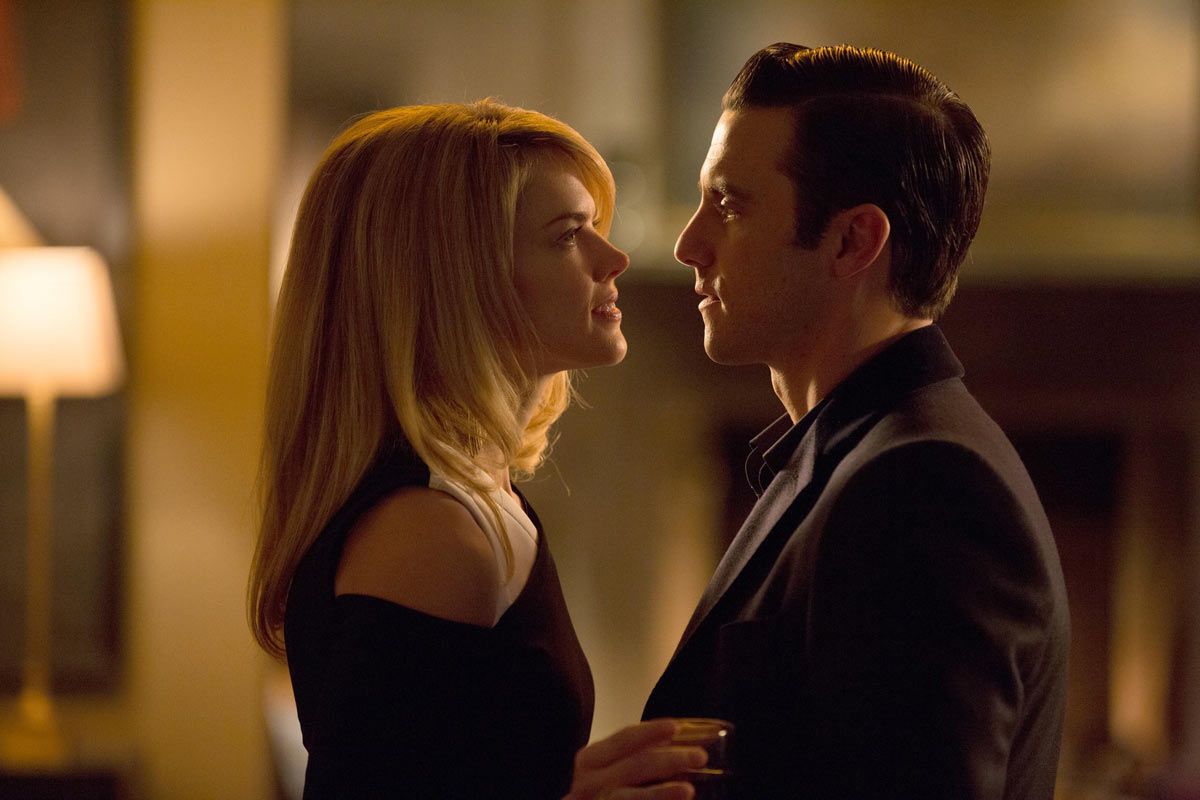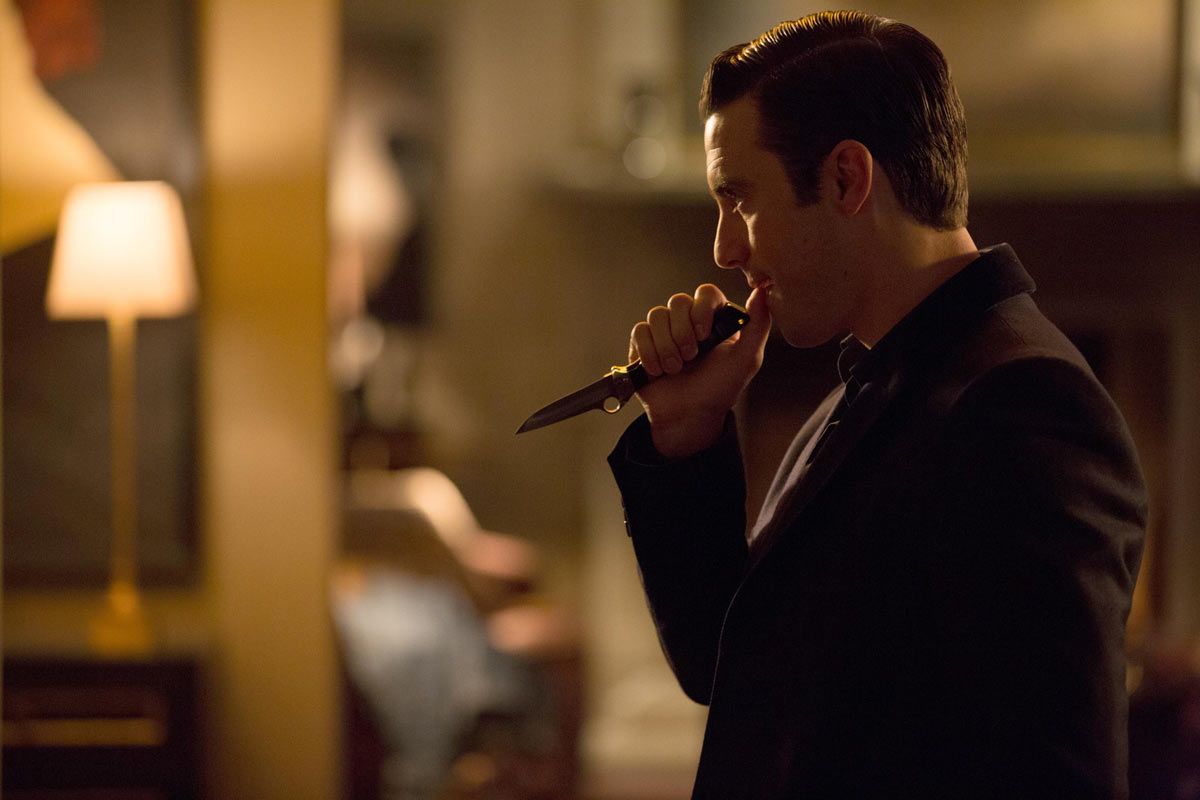In ever tale about their formative years, Jim Gordon has always served as a resolutely moral, law-and-order counterpoint to the vigilante Batman, who fights crime outside the lines drawn by legalities. But the young Jim Gordon of "Gotham" is about to find himself testing just where those limits end in his own personal quests for justice, according to actor Ben McKenzie.
RELATED: Gordon Investigates the Ogre in Eight New "Gotham" Clips
During the Fox hit's visit to Anaheim's WonderCon, McKenzie sat down with the press to provide a peek at the road ahead for the presumptive future police commissioner as he faces down the seductive, insidious serial killer The Ogre, who puts Gordon's own loved ones in harm's way, wrangles romantic complications ahead and realizes he may have missed the signs leading to the debut of one of Gotham City's most dangerous criminal masterminds.
What is Jim Gordon looking at, as we get closer to the finale?
Ben McKenzie: Well, we've already seen him evolve significantly. I mean, the last episode, when [Police Commissioner] Loeb used Bullock against him to free Arnold Flask, a guy that he had put behind bars -- Loeb orchestrated a betrayal of a partnership, and Jim and Harvey end up tracking down Loeb's cache of dirt only to find what really is at its heart is his daughter, who he's protecting because she killed Loeb's wife. Jim then uses Loeb's daughter against him for the good of Gotham in many respects, giving his own partner his dirt back on him so he's free and clear. But this concept of the sort of Machiavellian moves that Jim is now capable of is a real evolution for him.
I mean, when you saw him at the beginning of the season, he's almost naïve, he's so moral. He is naïve, he's so moral. Now, he has learned to play ball. That's only going to continue. At the end of the season, we introduce a new case, The Ogre, a serial killer who targets women, seduces them, tortures them, kills them. And then he also targets any loved one of a cop who comes after him. Any time a cop has taken on the case, a loved one of that cop has been killed. So he's kept himself from being investigated through intimidation. Jim, of course, cannot abide by this. He has to take on the case, only, of course, knowing that he will pay a price for that.
So has he morphed to the point where he really believes the ends justify the means?
He's getting dangerously close to that. I wouldn't say he's there yet. I would say the-end-justifies-the-means is probably the final journey of Jim of what we hope is a nice long run here -- or that's the end point of the journey, I should say: the journey is each step down the spiral staircase into hell. Each circle, which compromise, how deep a compromise are you going to make? Right now, he's only threatening Loeb with the exposition of his daughter. Loeb's a terrible guy. He's threatening to use it. He knows Loeb's going to fold. He folds. He got what he wanted. It's not too bad, but it will get worse.
What was your entry point into understanding the character?
He's a soldier. In our conception, he served, was decorated, and comes home, really, for the first time because he was raised outside of Gotham. He left after his father was killed. So he comes back to this city that he really never knew, to take on the crusade of his father who he always imagined was a lion, a hero. He quickly realizes the city is a moral abyss, and his father might not have been the upstanding citizen that he thought he was.
But the military, the sense of discipline and sense of mission, is, I think, what I gravitated towards when I first tried to get a hold of the character. He's the only one in Gotham who has that, right? Everyone else plays ball. Everybody else is "You know, do I really need to do my job? Maybe I can get a little extra money on the side..." Everybody's kind of sucked into that, because how could you not? Jim just has to be distinct in order to be the guy he is.
Romantically, he seems like he's a heartbeat away from a lot of complications. Can you give a sense of where he's headed?
Well, he and Thompkins are doing pretty well at this point. She's an M.E. She's working alongside him which has a little bit of -- it can feel a little claustrophobic to have your partner right next to you in the office. But they have a shared sense of mission. They really are sort of kindred spirits trying to clean up Gotham, so they're doing pretty well. But Barbara's come back, only to find Jim in the arms of someone else. The Ogre and Jim taking on that case, knowing that a loved one of his is going to be targeted brings the situation to a head that will have some pretty dire consequences to the people involved.
What was your reaction upon reading the script of the finale?
I was shocked at how far we went. It is just jammed. I'm actually, hopefully, going to see a cut of it on Wednesday with Danny Cannon, who directed the finale which -- it was great to get Danny back, who did the pilot and really helped create, along with production staff, the look and feel of the show. The finale, it's almost chaos. I mean, not everybody lives. Many people do not emerge, even if they do live, whole, let's say, from the experience. Yep, there's guns blazing and cars -- it's just crazy.
It seems like Edward Nygma's going to be quite a big character going forward. What's Jim's take on this?
I think at this point Jim's oblivious. We haven't seen him really -- I think he's so focused on so many other things, the fact that this fairly unorthodox oddball M.E. is becoming increasingly erratic isn't really registering yet. He's got bigger fish to fry. I think we will get into that. I'm not sure how far the writers want to push that in season two, but certainly, season three, season four, season five, probably, you're going to see an evolution throughout. So even in season two, you'll start to see that situation kind of evolve. I mean, at some point, Jim has to actually see what's going on with Nygma, and he can't be happy about it when he does.
Now that you've finished the journey, give me your takeaway from shooting the first season?
It's been, I think, like many -- maybe all -- first seasons of all shows, it's an education for everyone on the show. Any time you're trying to create something anew, and having 300 people work on it, which we do, you don't know what you're making until you start making it. Once you start making it, you start to adjust to what's working, what isn't working, what can be better, what needs to go away. And that's what we've done.
I think from a super sort of macro level, we made a mistake early on of becoming too procedural in our storylines in the first, say, six. The pilot wasn't, and then all of a sudden, we started becoming a little bit more weighted in that direction. I just don't think it worked. And we also weren't using as many characters from the mythology that we should have. We had villains of the week, but they weren't from the Batman universe. We're not going to do that anymore. We're focused on unspooling villains in multi-episode arcs. The vast majority will be from the mythology, and they will interact with each other. I think it's a much deeper and more satisfying experience for the fans.
So that's the big, macro takeaway. For me, as an actor and the character, I've learned an enormous amount. But it's mainly what I was talking about is the evolution or devolution of the character into a hardened, more seasoned guy.




